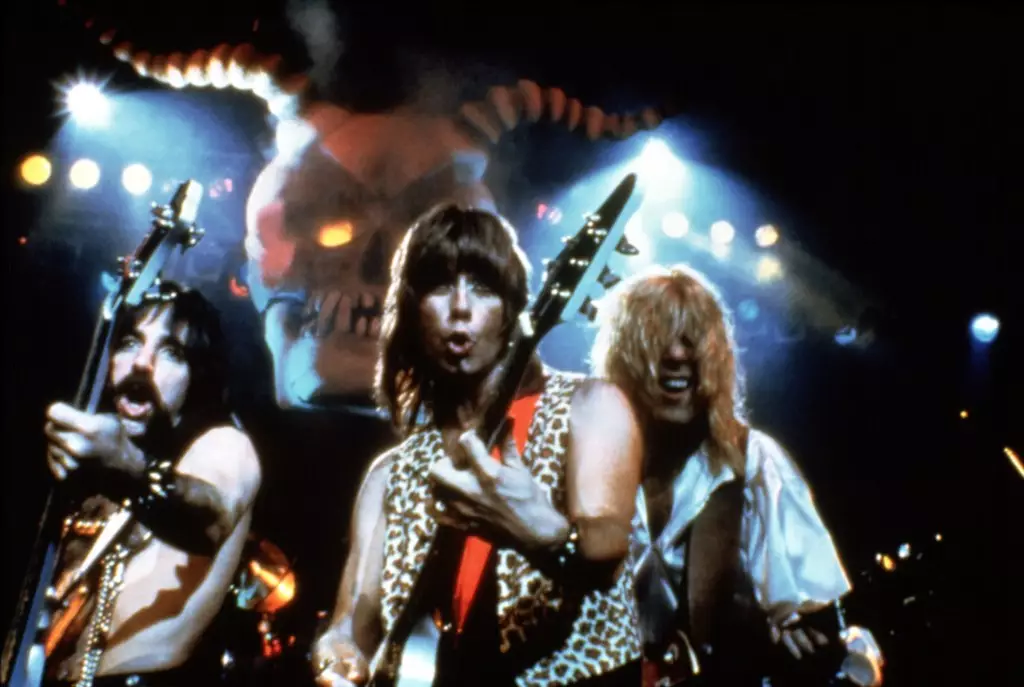In an era where blockbuster franchises dominate the cinematic landscape, the recent success of *This Is Spinal Tap*’s re-release illustrates the enduring strength of nostalgia. The film, a cult classic from 1984 that parodies the excesses and absurdities of rock bands, managed to draw audiences back into theaters despite its age and limited showtimes. With nearly $1 million earned over a modest three-day run, it’s clear that nostalgia remains a potent force—one that can challenge bigger-budget productions by leveraging fan loyalty and cultural nostalgia. The decision by distributors to extend showtimes reflects an awareness that selective, curated experiences are more appealing to audiences fatigued by the sameness of contemporary blockbusters.
This phenomenon underscores a broader trend: nostalgic content, especially when reimagined or restored for modern audiences, can serve as a financial lifeline for theaters seeking to maintain relevance. The success of *This Is Spinal Tap* demonstrates that classics, when presented with care and strategic timing, can punch well above their weight, offering older audiences comfort and new generations a taste of the cultural zeitgeist that once defined an era.
Limited Releases and Niche Films Make Meaningful Inroads
Beyond nostalgia, the current box office landscape is increasingly shaped by smaller, daring films that challenge mainstream narratives. The debut of *40 Acres*, a dystopian drama centered on a multi-racial Canadian farming family fighting for survival against cannibals, drew a commendable $475,000 across just 340 screens. This indicates that audiences are hungry for diverse, thought-provoking content—provided it is marketed correctly and released strategically. Niche films like *Kill The Jockey*, with modest opening figures, highlight that even low-budget, artistically driven projects can find their audience, particularly in major markets like Los Angeles, Chicago, and Austin.
This shift towards supporting independent and surrealist cinema signals a broader change: viewers are willing to seek out stories that diverge from traditional Hollywood fare. The careful expansion of films like *Kill The Jockey* and *Sorry, Baby* suggests that smart distribution strategies—targeting key urban centers—are vital for survival outside blockbuster dominance. These films serve as proof that there’s room for a diverse array of storytelling voices, provided the marketing and release plans are crafted meticulously.
The Fragile Nature of the Modern Box Office
While these niche successes are promising, the overall picture reveals an industry under strain. Major studios continue to produce high-budget blockbusters that, despite huge marketing spends, often underperform relative to expectations. The reliance on nostalgia and indie films as counterweights may offer short-term gains, but they do little to address the fundamental vulnerabilities within the theatrical ecosystem.
The enduring popularity of *This Is Spinal Tap*’s re-release makes one question the sustainability of such strategies. Are they merely Band-Aids on a deeper malaise caused by the rise of streaming, changing consumer habits, and the increasing costs of theatrical distribution? The sad truth is that unless Hollywood—and the broader film industry—develops a more sustainable model that values quality, diversity, and targeted marketing, box office numbers will continue their unpredictable, often disappointing course.
In essence, the current scene is a reminder that the film industry is in a delicate state. Nostalgia-driven re-releases and select indie hits serve an important role as proof of concept, but they also underscore a need for structural transformation. If Hollywood continues to focus on high-stakes franchises and superficial blockbusters, the cinematic experience risks becoming a relic of the past—relegated to nostalgia rather than innovation. The real challenge ahead is balancing the proven appeal of familiar stories with a courageous embrace of new voices, all while maintaining a financial model that encourages investment in quality over gimmicks.

